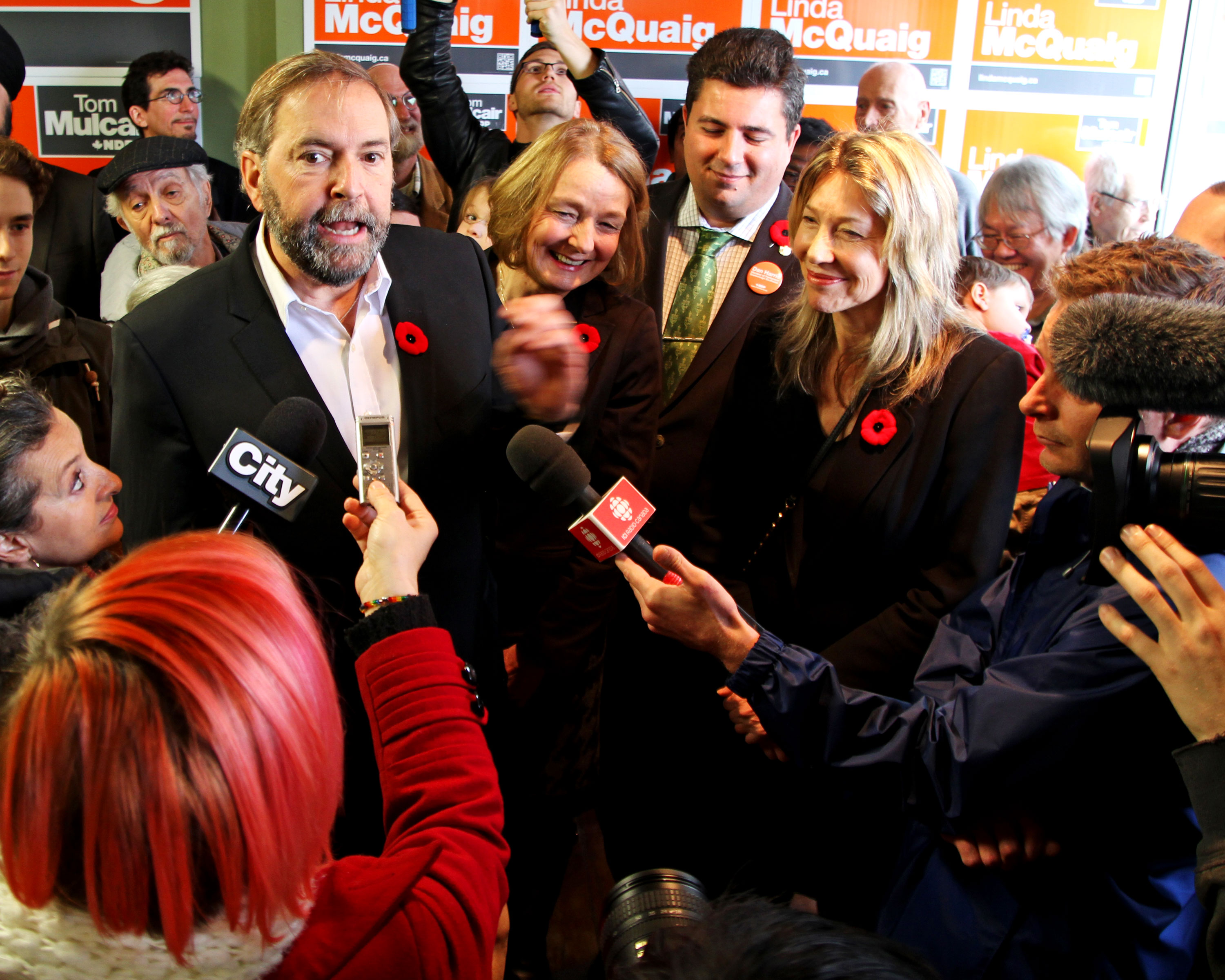When leaders refuse to debate women’s issues, will the problems be addressed at all?
Women: they exist. Legend has it that they comprise roughly 50 per cent of the population and face different social and economic issues than their male counterparts—a fact that has proven difficult for some Canadian political leaders to understand.

In the run up to the 2015 Federal Election, Up for Debate (a coalition of over 175 women’s groups) organized a leaders’ debate around the issues faced by women in Canada. This would have been the first such debate since 1984. Last month, both Prime Minister Stephen Harper and opposition Leader Thomas Mulcair declined to participate in this event. As a result, the debate—originally scheduled for Sept. 21—was cancelled, and one-on-one interviews with all the party leaders will be presented in its stead.
Harper’s Conservative Party has issued no statement on the turn of events. It has come to be a given that when it comes to such ‘liberal’ issues, the prime minister will not be involved. He does not seem to care about any marginalized community that will not directly win him seats. It speaks to something profound that now, women everywhere are not worth it to our prime minister.
Whereas no questions were asked of Harper concerning his un-involvement, the press has made up for it in spades with Mulcair, demanding why he will not take part in the event. According to a National Post report from Aug. 25, the NDP has stated that “[Mulcair] won’t take part in any leaders’ debates without Harper.”
The message being sent is that the Prime Minister is the only threat to an NDP victory. Aside from being insulting to the Liberals, the Bloc, and the Green Party, the decision comes off as extremely short-sighted. Instead of taking the opportunity to further portray himself as an individual who cares about all Canadians, Mulcair has shown that his aim is simply to beat Stephen Harper.
The leader of the opposition’s actions run directly opposed to the needs of his country.
An internal report by Status of Women Canada dated Feb. 10 details the reality of women in Canada. The report, not intended for public circulation, was recently obtained by CBC and released on Sept. 9. According to said report, women still earn 20 per cent less than their male counterparts for equal work. Poverty rates have been climbing for elderly single women and single parent households headed by a woman. Perhaps most shockingly, “Canada has no comprehensive national strategy to address violence against women, lagging behind several comparable countries, including the U.K., Ireland, Australia and New Zealand.”
This is the country in which Mulcair did not find a need to participate in a leaders debate on women’s issues.
According to their website the NDP is set to “create an action plan to end violence against women in Canada” and “ensure that no woman or child in need will be turned away from a women’s shelter.” It is strange then that Mulcair does not wish to debate such lofty goals with his peers.
Although the debate has been cancelled, all parties have begun talking about women’s issues and planning for upcoming interviews by Up for Debate. Each candidate will be recorded responding to the same set of questions.
Although it has been hoped that some discussion will come of the final videos, it is likely that, instead, the viewer will be treated to a scripted advertising slogan from each party.
The videos will be released Sept. 21 from Toronto. It’s unknown at time of writing if the prime minister will appear in any capacity.




